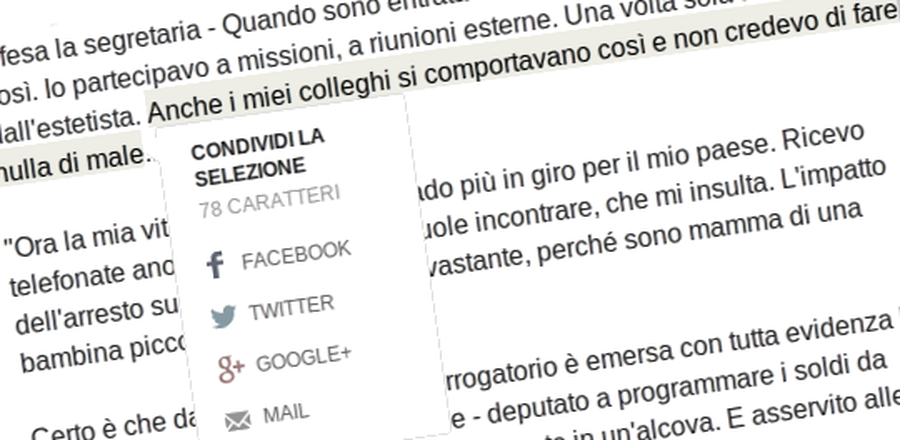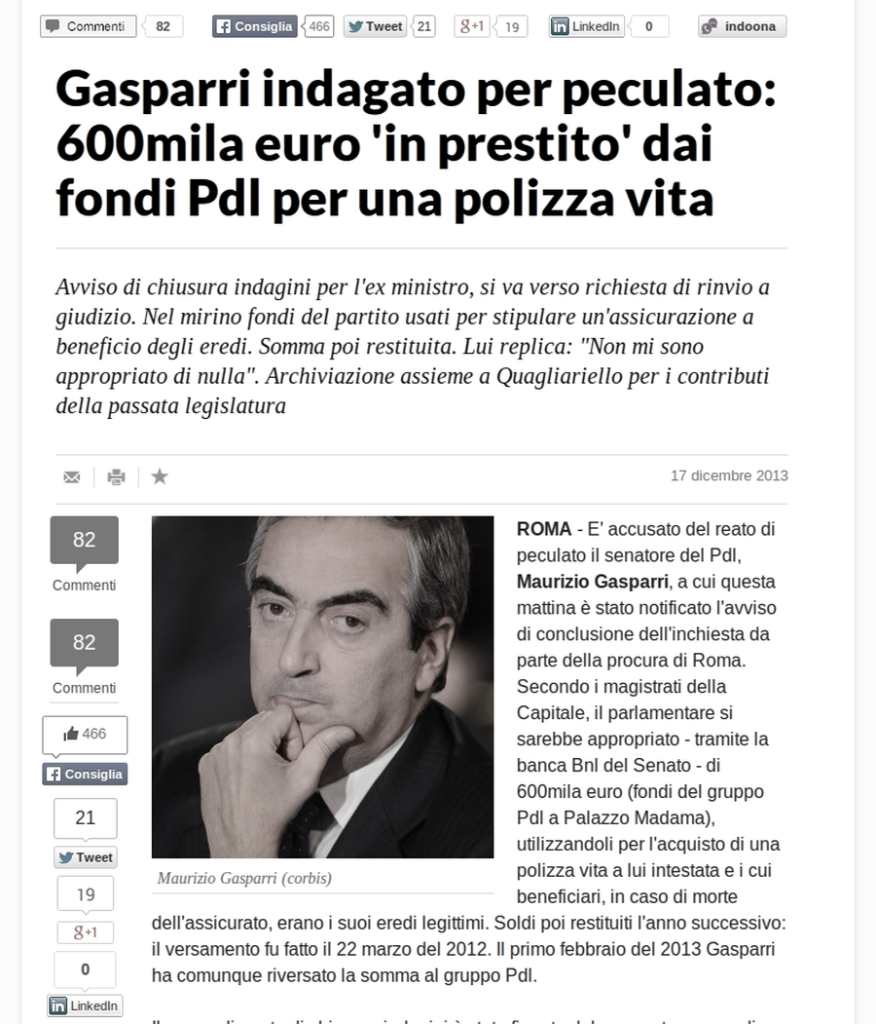Assistant professor in informatics, information architect, designer, piano player, author.
To index or not to index
This past week Italy made the evening news again thanks to its controversial so-called “webtax”. which originally intended to make mandatory for e-commerce providers (whatever that might mean in 2013) serving Italian customers to open a VAT position on Italian soil.

The proposal has now been softened, the VAT position requirements expunged, and prime minister Letta announced it will be “subject to EU approval”, which in the language of Italian politics probably means ”we don’t really know what to do with this, as we’d love to have it but for some reason we don’t really understand it all came out very, very controversial”.
The irony here is that while the webtax had the spotlight, a far worse disposition, originally part of the so-called decree “Destinazione Italia” approved December 13 and apparently now also expunged from the published schema (here, in Italian), has received comparative little mainstream attention.
The disposition, clearly articulated in the minutes from the Council of Ministers no. 40, stated that among the measures to contrast the crisis the news and editorial sector is currently facing, changes are to be introduced to the way “search engines” and “news aggregators” index, link or reuse content from online newspapers, in order to fully respect intellectual property rights. These changes, as a few commentators have outlined, practically amounted to the Googles and Reddits of the world having to stipulate formal contracts with said newspapers if they intended to index or link or report on any content bearing an “all rights reserved” note. Of course, it goes without saying, after paying some form of remuneration for the privilege.
I’m not trying to downplay the madness that lies behind the webtax, the very idea that the only way to make Italy competitive and prevent ”tax avoidance” (that is, have big players such as Microsoft or Amazon locate their European subsidiaries wherever they can maximize profit) is to require by law that they open up offices in Italy, but I think the original formulation of that part of the decree goes beyond that.
While the reuse / remediation bit could be argued both ways, even though current legislations already sanction plagiarism and the like, the part about indexing and linking not only makes very little sense, but shows a complete disregard for the basic mechanisms that make the Internet, and the larger Web, a valuable service (I won’t even consider ignorance as a possible excuse here).
From a legal point of view, linking is somewhat a controversial subject when it comes to public communication: while the decree assumes links to be one very specific thing, the EU has yet to clarify their legal nature in full, and general common sense and a basic knowledge of the mechanisms of the Web make it difficult to see in them anything more than citations. And citations, we should not forget, are allowed as part of the fundamental constitutional rights that refer to the free circulation of information.
Even more, and on a higher, broader level that concerns me much more, it is clearly in the interest of anyone publishing anything on the Internet which is not behind a paywall, in which case indexing and linking are already not happening today, to have the broadest exposure possible. And newspapers seem to understand this pretty well, wouldn’t you say so?

The screenshot above is taken from an article published by La Repubblica online, one of the most visited Italian online newspapers, and shows how they make it easy for you to select something and proceed to share it on the major social platforms. That is remediate and link in one single click and, if that disposition entered into force, nothing we could do unless Google, Twitter and Facebook all negotiated contracts with the publisher. And paid good money for it. But La Repubblica Online evidently believes they have something to gain from allowing their readers to share. Interesting contradiction.
The screenshot below shows another page almost in its entirety. You will surely appreciate the proliferation of social media links again, likes, tweets, plusses and more, both top and left. This is also a “riproduzione riservata” (all rights reserved) article. To find that article, I googled for that piece of news after reading some tweets about it. It seems like being indexed and mentioned around is also increasing the value of whatever La Repubblica Online has out there.

As I said, the schema seems to have lost the disposition along. No comments on the absence of this part of the proposal in the final schema are yet to be found anywhere in the Italian websphere.
We will see what Italy will do with this when the decree will be officially converted into law, a necessary step to make its effects permanent. As the Chambers are free to modify the text as they see fit, the cards are still on the table. The deadline is February 13, 2014. For my part, I have a note in my calendar to go check it out.
(Title pic: Jon S, Newspapers B&W, http://www.flickr.com/photos/62693815@N03/6277208708/, CC 2.0)
Detta är en bloggtext. Det är skribenten som står för åsikterna som förs fram i texten, inte Jönköping University.





